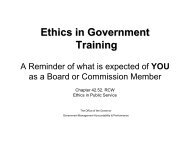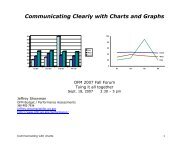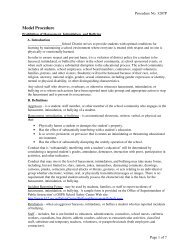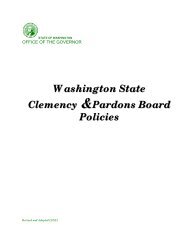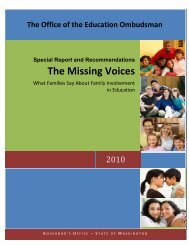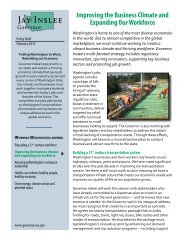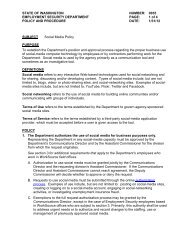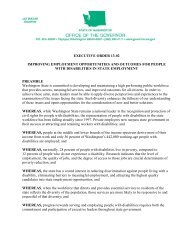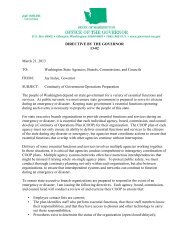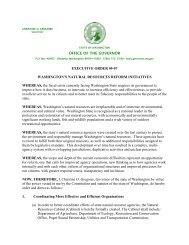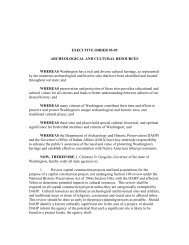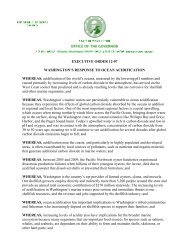Higher Education Funding Task Force
Higher Education Funding Task Force
Higher Education Funding Task Force
Create successful ePaper yourself
Turn your PDF publications into a flip-book with our unique Google optimized e-Paper software.
the legislature to sustain its financial support for higher education in the short term and grow it in the long<br />
term. But if state funding falls short, under this formula the universities will have the flexibility to fill in the<br />
gap through higher tuition.<br />
Second, we recommend the State take an innovative and sustainable step to establish a new<br />
source of revenue to provide financial aid for low- and middle-income students who want to<br />
attend college. Specifically, we recommend the creation of a new Washington Pledge Scholarship<br />
Program.<br />
As reflected by the existing budget challenges, the current approach to financing student financial aid<br />
leaves the State ill-prepared for economic downturns. Yet students’ ability to attend college should not<br />
depend on whether the State is enjoying good economic times when they turn 18. And given the current<br />
budgetary and tax climate, it’s not feasible simply to budget more money from existing revenue sources.<br />
Instead, we need to create a new revenue source and use this to establish a long-term, sustainable<br />
foundation for financial aid.<br />
Our goal is to create over the next decade a $1 billion endowment for Washington Pledge Scholarships,<br />
funded by new, voluntary individual and business donations and incentivized by federal and state tax<br />
provisions. By establishing this as a private nonprofit fund, the State can guarantee these funds will always<br />
be used for one purpose and one purpose only – ensuring that the gates of our community colleges and<br />
public universities remain open to students of all economic backgrounds.<br />
While individuals who contribute to the endowment will benefit from a federal income tax deduction, we<br />
recommend the State create an incentive for businesses to contribute as well, by providing within specified<br />
limits a 50 percent credit on Business and Occupation and public utilities taxes. While these tax credits<br />
would be earned upon making a contribution, they would be exercisable against these taxes only when the<br />
overall revenue generated from these taxes rises above FY2008 levels.<br />
Third, we recommend concrete steps to strengthen accountability and performance by the State’s<br />
public universities.<br />
Although we share a very high regard for the existing management at all six universities, we believe it’s<br />
important to take new steps that will strengthen these areas even further. These should start with the<br />
adoption of certain mandatory measurements from the National Governors Association’s Complete to<br />
Compete effort.<br />
The State should also institute a new incentive system that borrows from both the success of<br />
Washington’s recent program for community colleges and the success of the federal government’s recent<br />
Race-to-the-Top program. This will enable the legislature to invest limited additional funds to reward<br />
campuses that help more students complete their degrees.<br />
HIGHER EDUCATION FUNDING TASK FORCE





